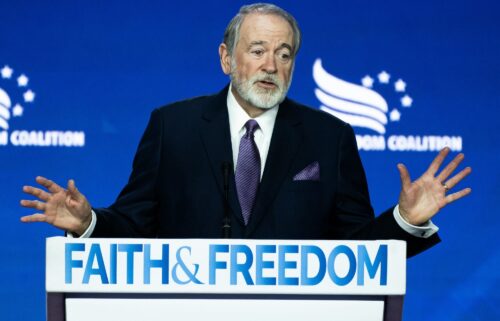Defense secretary abruptly revokes plea deal with alleged 9/11 mastermind KSM, co-conspirators
CNN
By Oren Liebermann and Evan Perez, CNN
(CNN) — Defense Secretary Lloyd Austin abruptly revoked a plea deal for the alleged mastermind of the September 11, 2001, terror attacks and his co-conspirators, and he relieved the overseer in charge after years of effort to reach an agreement to bring the cases to a close.
In a surprise memo quietly released Friday night, Austin said the responsibility for such a significant decision “should rest with me.” Only two days earlier, the Pentagon announced that it had reached a plea deal with Khalid Sheikh Mohammed, more commonly known as KSM, and two other defendants – Walid Bin ‘Attash, and Hawsawi – accused of plotting the attacks.
The memo, addressed to Susan Escallier, the convening authority for military commissions who runs the military courts at Guantanamo Bay, said the defense secretary would immediately withdraw her authority in the cases and “reserve such authority to (himself).”
Austin said that he was withdrawing from the three pre-trial agreements, which had taken the death penalty off the table for the three men.
Prosecutors in the case had been discussing the possibility of a plea deal for more than two years, which would have avoided a lengthy trial complicated by questions over the admissibility of evidence obtained during torture.
After beginning negotiations in March 2022, the pre-trial agreement announced Wednesday would have seen KSM and his co-defendants sentenced to prison in exchange for pleading guilty to all charges, including conspiracy and the murder of the 2,976 people listed in the charging sheet.
In 2008, Mohammed was charged with a list of crimes including conspiracy, murder in violation of the law of war, attacking civilians, attacking civilian objects, intentionally causing serious bodily injury, destruction of property in violation of the law of war, and terrorism and material support of terrorism. The US had said it would seek the death penalty for Mohammed.
But the military trial against Mohammed and his alleged co-conspirators was delayed for years as the US tried to determine how to handle the issue of torture used against Mohammed and others at secret CIA prisons in the 2000s. The trial was set to begin on January 11, 2021, but delays brought about by the resignation of two judges and the coronavirus pandemic pushed the date back.
The plea deal announcement prompted a fierce backlash, including from both sides of the political aisle and some groups representing 9/11 victims who have pushed for the US government to pursue the death penalty for the worst attacks on US soil since Pearl Harbor.
“While we acknowledge the decision to avoid the death penalty, our primary concern remains access to these individuals for information,” said Brett Eagleson, the president of 9/11 Justice, an organization that represents 9/11 survivors and family members of victims, in a statement following the initial announcement. “These plea deals should not perpetuate a system of closed-door agreements, where crucial information is hidden without giving the families of the victims the chance to learn the full truth.”
Democratic Sen. Richard Blumenthal of Connecticut, who has represented families of 9/11 victims, told CNN Thursday he had concerns about the plea deal and said the administration owed Americans an explanation for the agreement.
“I think there are interests here that may not have been represented as fairly and aggressively as they should have been,” he said, adding, “When we fight terrorists, and we have them in custody, we need to hold them accountable with the kinds of penalties that really do justice to the victims.”
Sen. Lindsey Graham, a South Carolina Republican, warned that the plea deal “sends a horribly bad signal at a very dangerous time.”
“The world is on fire, terrorism is rampant, and we give a plea deal to the mastermind of 9/11? That just encourages more attacks,” he said.
The US government’s efforts to bring the 9/11 defendants and others held at the Guantanamo prison to justice has been marred by legal and political obstacles spanning administrations since George W. Bush.
In 2009, then Attorney General Eric Holder announced plans to charge the men in US criminal court in Manhattan, prompting backlash from some lower Manhattan residents and Republicans who insisted military tribunals were more appropriate. The transfer was part of President Barack Obama’s goal of closing the Guantanamo prison, a campaign promise.
Republicans passed laws blocking the prison closure and Holder dropped plans for a trial. US criminal courts for decades have dealt with high profile terror trials, including with death sentences, which Holder had authorized. But political opposition relegated the case to the Guantanamo tribunals, mired in delays.
Holder reminded critics on Friday that his 2009 plan would likely have resolved the case long ago.
“The people responsible for structuring this awful deal did the best they could,” Holder said on X, invoking Daniel Pearl, the Wall Street Journal reporter killed by terrorists in Pakistan. “They were dealt a bad hand by political hacks and ideologues who lost faith in our justice system. KSM would be just a memory if my 2009 decision had been followed. #DannyPearl.”
This story has been updated with additional details.
CNN’s Manu Raju and Morgan Rimmer contributed to this report.
The-CNN-Wire
™ & © 2024 Cable News Network, Inc., a Warner Bros. Discovery Company. All rights reserved.



